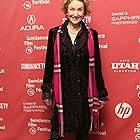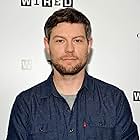I saw The Strongest Man at the Sundance Film Festival and found it to be a well-crafted, multi-faceted critique on the economic divide that festers in American cities like Miami, Fla.
It tells this tale largely through its hero, Beef, an undeniably Strong Man on the outside who wages an inner battle against his insecurities.
The Strongest Man accomplishes its feat by telling these stories without bashing you over the head. The film lacks any hint of pointed rhetoric and dialogue on these important issues that, though no doubt tempting to insert, could condemn the film to the stockpile of preachy, too-cool-for-school films that prove little besides how smart the writer is.
The debut acting performances of Robert Lorie (Beef), and Freddie Wong (Jimmy Woon),seem to be on point with the tone and aesthetic that director Kenny Riches was aiming for. And the score and cinematography are outstanding.
Taken together, the film shows a Miami no less beautiful than the glossy magazine advertisements showing luxury condos on South Beach, but one that is far more real. There is, The Strongest Man shows, a corner of this gilded beach city where real people struggle to live their lives in the shadows of immense wealth and privilege. And in Beef's case, the dude just wants to ride his beloved bronzed BMX bike.
If not a metaphor for Beef's battle against his inner demons, the bike and Beef's high riding IQ might be symbols illustrating the need for simple pleasures-I daresay childlike pleasures-in a world that can be far too focused on material stuff, like amassing collections of fine art and agonizing over the placement of a painting.
The film does contain a few moments of close dialogue that, to me, could have used some touch-up work. This rough edge, though, is hardly a definitive feature of the film.
In the end, The Strongest Man reminds me of some of Wes Anderson's films that, while possibly falling short by Hollywood blockbuster narrative standards, is nonetheless a beautiful, emotional and entertaining ride.














